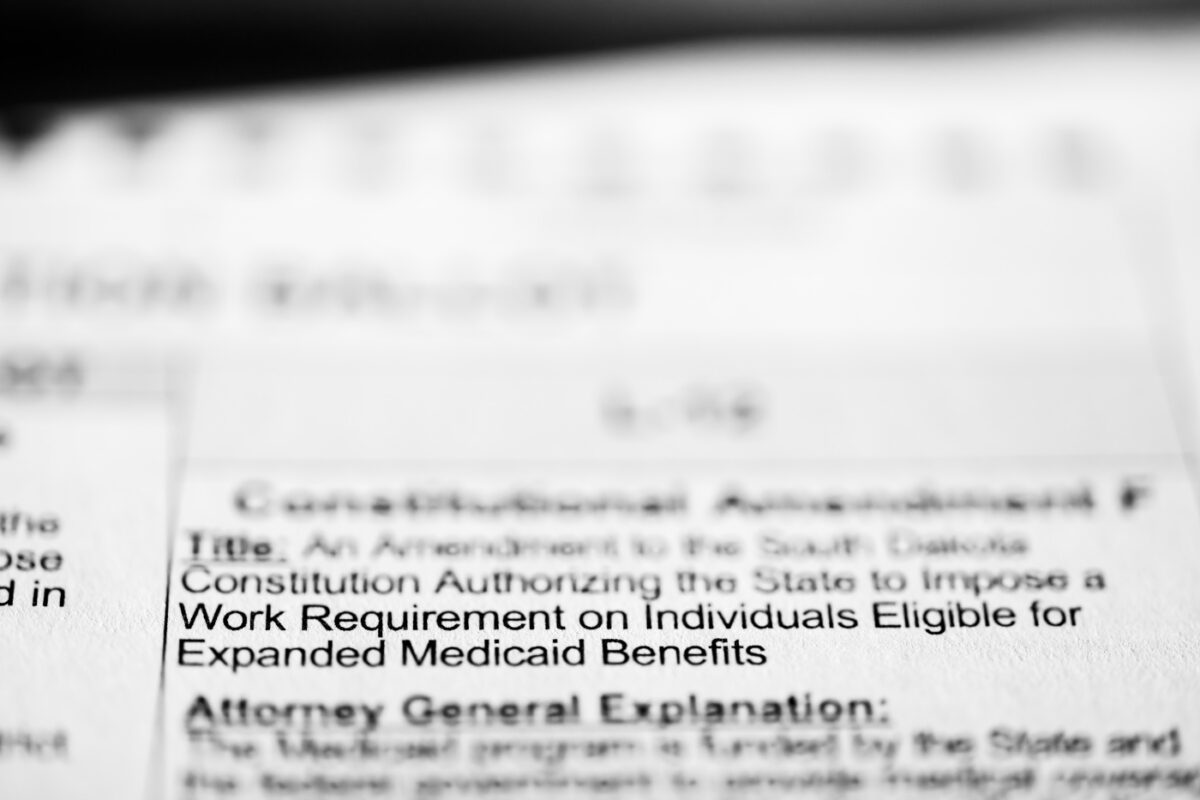
(Updated June 17, 2021)
The public comment period is now open for the Arkansas Health and Opportunity for Me (ARHOME) demonstration waiver program, the proposed overhaul of Arkansas’s Medicaid expansion program known currently as Arkansas Works.
The waiver application was released on Sunday, June 13. Comments on the application may be submitted to the Arkansas Department of Human Services (DHS) through July 12. Gov. Asa Hutchinson said Tuesday, June 15, the application will be submitted to the federal Centers for Medicare and Medicaid Services on July 14, leaving little time for DHS to respond to public comment.
The ARHOME waiver application aligns with recently passed enabling legislation for the program, Arkansas Act 530 of 2021. However, the waiver application provides additional detail on how ARHOME will operate and offers a lengthy justification for program features such as premium and cost-sharing obligations and “reassignment” of “inactive beneficiaries,” or those beneficiaries who fail to actively participate in health improvement or economic independence opportunities such as work and community engagement activities.
Like its predecessor programs — initially the Arkansas Health Care Independence Program and subsequently Arkansas Works — ARHOME has premium assistance as its core. The premium assistance model uses Medicaid funding to purchase individual qualified health plans (QHPs) available on the Health Insurance Marketplace instead of administering coverage through the Medicaid fee-for-service program. The federally required evaluation of the premium assistance model in the Health Care Independence Program showed that Medicaid enrollees in QHPs experienced better access — both perceived and actual — and higher-quality care than enrollees in fee-for-service. The use of premium assistance has also benefitted the individual insurance market in Arkansas by promoting enhanced competition and stabilizing premiums.
Highlights of the waiver application in addition to premium assistance include the following:
- The state is requesting permission to require cost-sharing for most individuals in the program (those with household incomes at 21% of the federal poverty level (FPL) up to 138% of the FPL, which is the income eligibility limit for the program). The waiver application indicates that approximately 40% of enrollees have household incomes at 20% of the FPL and below. The state will not intercept enrollee tax refunds to recoup cost-sharing payments not collected by providers, as it has done previously for unpaid premium obligations. Providers will be permitted to refuse to see patients who have previously failed to pay co-payments, which can range from $5‒10 per service.
- The state is requesting permission to continue but increase premium obligations for enrollees with household incomes from 101‒138% of the FPL. Premiums that were previously capped at $13 will increase to $22‒27, depending on income. The state will no longer intercept enrollee tax refunds to recoup unpaid premium obligations.
- Medicaid is required to pay for services received by eligible individuals up to 90 days prior to application for eligibility. This is called “retroactive” eligibility. The state is requesting to limit the period of retroactive eligibility to 30 days, consistent with the Arkansas Works program.
- Individuals who are identified as having a serious and persistent mental illness (SPMI) will be diverted into a separate program (the PASSE program, or Provider-led Arkansas Shared Savings Entity program) designed to manage individuals experiencing SPMIs or having intellectual or developmental disabilities.
- The state will establish and fund Life360 HOMEs, through which hospitals will employ their own staff or organize local partners to help individuals improve their health or “achieve socioeconomic goals.” The waiver application indicates that hospitals will be paid for start-up costs to establish Life360 HOMEs through a cooperative agreement, as well as a per-member per-month or flat fee for providing services. Targeted groups for Life360 HOMEs are rural beneficiaries — particularly those experiencing mental illness or substance use issues — women with high-risk pregnancies, and young adults most at risk of poor outcomes, such as those who were previously in foster care or youth services.
- The state is requesting permission to “reassign” enrollees who are “inactive” from QHPs into the Medicaid fee-for-service program. As initially proposed in the enabling legislation, those who were to be reassigned were those enrollees who did not participate in health improvement or “economic independence opportunities,” such as work and community engagement. The waiver application does not define “inactive” beneficiaries, but it signals that being considered “active” will not be limited to participation in health improvement and economic independence activities but may include simply using the insurance to go to the doctor. The waiver application also indicates that enrollees may transition back to a QHP by demonstrating active participation, which can be demonstrated by selecting a QHP or otherwise participating in available opportunities. The state’s justification for “reassignment” is to educate enrollees to “recognize and value the health coverage as insurance above and beyond Medicaid medical assistance.” These waiver provisions would not take effect until January 2023 after rule promulgation at the state level. Notably, the state is requesting permission to include the costs for enrollees who are reassigned into the Medicaid fee-for-service program as part of the waiver costs. This would have the effect of lowering per-member costs for the waiver, given that beneficiary costs are significantly less in Medicaid fee-for-service due to lower reimbursement rates, as documented in the Health Care Independence Program evaluation.
- The state is proposing to establish an enrollment range and suspend enrollee auto-assignment (in the event of failure to select a QHP) in an effort to ensure the state meets annual budget targets.
- The state is proposing to allow QHPs to use 1% of premium dollars for community investment. The 1% will be counted as medical expenditures rather than administrative expenditures toward the required medical loss ratio ― the mandate that QHPs spend 80% of premium dollars toward medical costs.
- The state is proposing to require QHPs to meet annual quality targets based on the core set of Medicaid quality metrics and subject them to sanctions for not meeting quality targets beginning in 2023.
For more information about the ARHOME program, including information on how to submit comments and on public hearings scheduled for Jun 21 and 22, visit https://humanservices.arkansas.gov/rules/arhome/.






